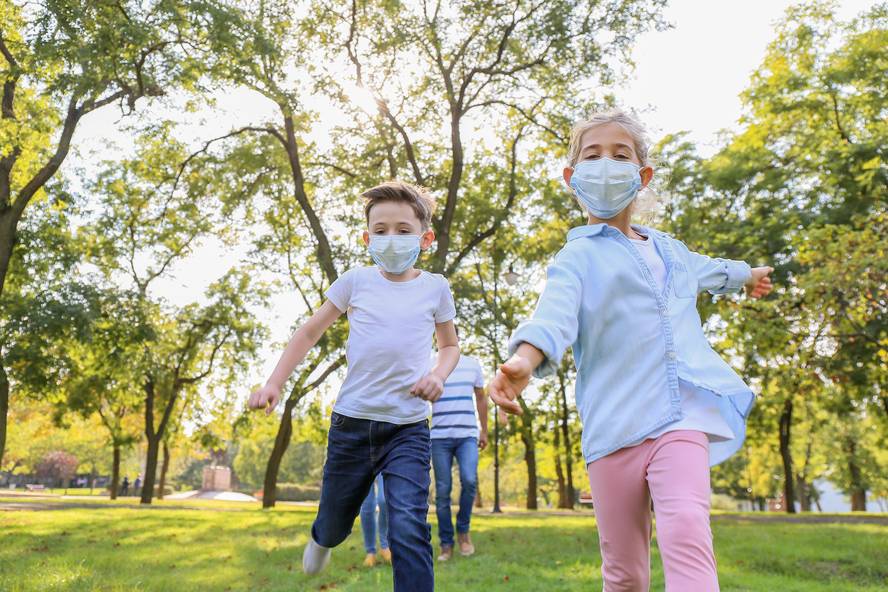
Risk of nostalgia
Published in Begitu on 1 February
After these last two years, it is evident the desire to stay calm with so many people, to hug quietly, to kiss quietly, to dance tranquil, to sing tranquil, to practice sports, to take care of and take care of, to travel quietly… And it is not surprising that they are activities characteristic of our species. However, to prevent the transmission of a virus we have been forced to renounce everything we have so deeply rooted, and the attitude to it, the rejection or rejection of denial, has made the environment even worse.
We have forgotten, however, that returning to oneself would risk all this happening again. Because the S? -CoV-2 virus has not been created and spread by chance. And no, it's not because, as some conspiracy theories say, someone has intentionally planned and created, no. It has not been necessary.
In fact, scientists were absolutely certain that such a pandemic would occur, and it wasn't going to be too far in time. In his opinion, an airborne pathogen was probably a virus. Flu? It would not be surprising that in 2009, for example, there was fear of the appearance of H1N1. A antivirus? That could also be, given the threat of SARS and MERS.
They also predicted where and how it would happen. The microbiologist Miren Basaras Ibarluzea, one year before the appearance of COVID 19, in a report in the Elhuyar magazine on the 1918 pandemic, said: “There are places where there is an increased risk of the virus jumping from animals to humans, for example in Asia: “Why? In nurseries, because there is a lot of closeness between birds [animals] and people.”
We forget that. We had other concerns. But then came the reminder. The initial response, however, was to deny reality. In China the first cases were not reported and then, when it was warned that it was a new contagious disease, a rejection was made in the West. Once the virus left China and it was confirmed that it had arrived there, the following was also used: “it’s just the flu.”
From contempt to the expression of war
It is difficult to know the evolution of the pandemic, if the managers had worked the strategy together with the social agents and with a social vision assuming the gravity and complexity of the situation, leaving aside pride.
In fact, in Euskal Herria, for example, in March 2020, the Feminist Movement created a technical table to “address the crisis of youth concerned with the COWEAK-19”. The Basque Government, the Government of Navarre and the Basque College have been asked to set up a monitoring coordination table. In addition to the political and trade union parties, it was pointed out the need to involve social agents: feminist movements, domestic workers and residences, associations, and experts in the field of care, economics and medicine.
The authorities, however, did not. The virus was confined and declared war. When they got a gun, they put the force: the vaccine. Relying solely on this strategy showed clearly, but to what extent the view on the situation was reduced. At best, the development of the most powerful vaccine of all time and its application to the whole world would allow mastery of the SVS-CoV-2.
Syndemic vision
They forgot that the problem wasn't just a virus. It was not a pandemic, it was a syndemic, and it was noticed, in October 2020, in one of the best-known journals, The Lancet. The syndemics are characterized by the biological and social interaction between conditions and situations, which accentuate the tendency to harm or worsen people's health.
And in the situation we live in, the health crisis, the social crisis and the environmental crisis have come together. Therefore, strategies that respond to a single aspect will necessarily be overwhelmed.
They made this clear in The Lancet: “As long as they do not design policies and programs to change major inequalities, our societies will never be really sure of COVID 19.” They also announced: “The economic crisis that comes to us will not be solved by a medicine or a vaccine.” A broader vision including education, employment, housing, food and the environment was therefore recommended.
Before this came the first vaccines and renewed promises: “With the addition of 70% of adults, group immunity will be achieved.” The horizon was in the summer of 2021. Wanting to return to the first, forgetting facts and emerging diseases.
We have said that this is an unenforceable promise. And we've forgotten it. We have forgotten that the Health Advisor of Navarra announced the end of the pandemic in September 2021. And we want to believe that the pandemic is about to end and that we are almost in debt, although we don't know very well what that means.
We are affected by nostalgia. But if we want a better future, we should not forget and learn from what we are going through. The first and the oblivion have brought us here.





